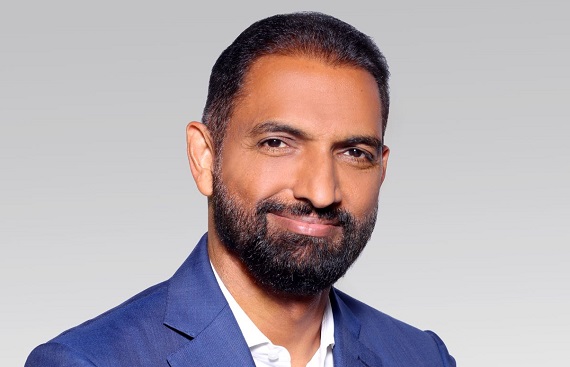Sustainability in the infrastructure industry is the key focus

Generally, sustainable infrastructure is an approachable development from a holistic viewpoint, based on global & domestic sustainable development. In a recent conversation with the Editor of siliconindia, G V Sanjay Reddy, Vice Chairman of GVK, shared his thoughts on sustainability in the infrastructure industry.
Humans have been heavily reliant on natural resources till now. Nature provides everything that a human needs to sustain life on this planet but in today’s consumerist world where everyone needs everything available to make their lives easier, saving natural resources has become of utmost importance. As we are noticing the changes in the environment with each passing day, the need for sustainability has become even more essential.
Even though we hear the word sustainability frequently, do we know what it means? Well in simple words, sustainability means optimally using natural resources and ensuring that using them does not put future generations in dearth. However, all the changes in our lifestyle and our need for development have led to a disparity in the environment. Even though many attribute this disparity to the fast infrastructural development around the world, it is indisputable that reliant infrastructure is the backbone of any economy.
We at GVK group believe that infrastructural development is extremely important for any country, but doing it sustainably is the key. Any development that is done without keeping in mind our environment or future generations is no development at all. It should have the betterment of society, environment, and economy at its core.
Elaborate on the development without putting our environment at risk.
The Indian government plans to invest INR 102 lakh crore on infrastructure projects by 2024-25. With this level of investment and development, the threat to local ecosystems and the environment is justified. However, the government has put in place initiatives like National Green Hydrogen Mission to ensure that we are not putting our environment at risk for development and controlling our carbon footprint as a country. Major companies like Reliance Industries Ltd. and Indian Oil Corporation Ltd. have already announced plans of reducing carbon footprint and going green.
I believe that planning is probably the biggest step in development, any project should be a combination of sustainability and financial viability. If the balance between the two is good, then there are endless opportunities for economic development and job creation.
There must be a streamlined process to enforce building codes and other ordinances regarding construction and planning. Ease of doing business is probably one of the things that can make or break this mammoth task of sustainable development. To ensure success the government must incentivize developers through exemptions/tax rebates, availability of automated technology, strict follow-up regarding carbon footprint, and research and development for greener alternatives.
Enlighten us on the various technologies that address sustainability in the infrastructure industry.
Technological innovations like the Digital Twin Technology which helps in mirroring an asset and organizing data to make it interoperable and Building Information Modeling which is a crucial element in designing, planning, and construction, can be game changers. These tools help in navigating uncertain situations with ease and by assessing risks.
While creating and planning for infrastructures that span decades, corporates must have proactive thinking and foresight to assess future trends. Developers need to have an agile operative stance so that they can assess the needs. No matter what changes in the future, the need for technologically friendly spaces and easy access to the world around will not change even in their infrastructure needs. Optimal use of time, convenience, and safety is always going to be the center point of all operations. It is important for developers to envision what provides value to people not only right but also after a decade. The industry needs to evolve and reassess its needs and goals to be in line with this global trend of sustainable development.
With the push for green initiatives in the 2022 budget, and with the goal of zero emissions by 2070, it has become imperative that from here on any change or planned development is done keeping in mind the impact it is going to have on the future generations. It might be a tough and challenging task but sustainability has to be at the core of all developmental activities.
